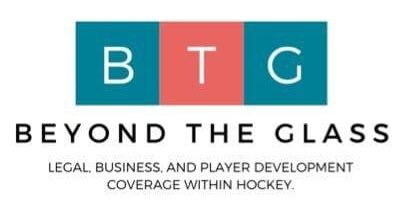Evander Kane Filing for Bankruptcy Brings the San Jose Sharks, the NHL and the U.S. Constitution Closer than One Would Think….
By Alec Roberson
Evander Kane of the San Jose Sharks is one of their most skilled players. He consistently sits on top of the team ranks in points. In 2018, Kane signed a seven year, $49 million contract with the Sharks. That contract still has a $29 million payout remaining. However, due to a large amount of mostly gambling debt, Kane filed for Chapter 7 bankruptcy in January of 2021. Ever since that filing, Kane’s situation has been nothing short of an interesting set of events, lessons, and potential outcomes.
Evander Kane’s Debts and Bankruptcy
As mentioned above, Kane filed for Chapter 7 bankruptcy in January of 2021 to get relief from amounts due to his creditors. In that filing, Kane listed over $26.8 million in debts, $1.5 million in gambling losses, and over $10.2 million in assets. Kane’s contract with the San Jose Sharks is his only source of income and was used to secure many of his loans. Until October 2019, the Sharks had been deducting some of Kane’s salary and paying those amounts directly to some of his creditors. Allegedly, Kane instructed the Sharks to stop those payments and failed to make anymore payments himself. This led to a lawsuit against both Kane and the Sharks in January of 2021.
Following that suit, among others pending against Kane, he filed for Chapter 7 bankruptcy on January 9, 2021. In response, many of Kane’s creditors filed a motion to convert Kane’s Chapter 7 bankruptcy into a Chapter 11 bankruptcy.
Chapter 7 v. Chapter 11 Bankruptcy
Bankruptcy is a court proceeding under United States’ federal law that allows individuals or companies in financial distress to resolve their debts. This can be achieved in a few different ways.
1. Chapter 7 Bankruptcy
Chapter 7 bankruptcy is most commonly used by individuals. It involves the debtor disclosing his/her/its debts and assets and then liquidating non-exempt assets to pay off his/her/its creditors in a specified order. Certain assets such as a home may be exempt from such liquidation.
2. Chapter 11 Bankruptcy
Chapter 11 bankruptcy is more commonly used by companies but can be used by individuals as well. It involves the debtor renegotiating its debts and developing a repayment plan with a bankruptcy trustee and its creditors. This usually involves restructuring the company’s or individual’s business in order to produce larger profits and pay off debts. Once the plan is developed and accepted by the bankruptcy court, the plan goes into action.
3. The Importance of Income
One significant difference between Chapter 7 and Chapter 11 bankruptcy is that Chapter 11 brings one’s income into the equation. The Chapter 11 creditors can garnish one’s wages or profits as such income becomes part of the bankruptcy estate. In Chapter 7 bankruptcy, after liquidation, if any creditors with lower priority remain unpaid they are generally out of luck.
Kane’s creditors filed this motion so that Kane’s future salary payments under his contract would become part of the bankruptcy estate. This means that Kane’s creditors could garnish his salary for a period of time determined under the bankruptcy proceedings. So now the series of events are as follows: (1) Kane signs a big contract with the San Jose Sharks; (2) Kane incurs large amounts of debt; (3) Kane files for Chapter 7 bankruptcy; and (4) Kane’s creditors attempt to convert the bankruptcy into a Chapter 11 bankruptcy so they can garnish future wages. Well…..it takes two more interesting turns.
Kane and the Sharks Considering Terminating Kane’s Contract
Following Kane’s creditors’ motion for conversion, Kane and the Sharks filed a motion stating that they have not ruled out mutually terminating Kane’s contract. That motion continues to state that the Sharks and Kane would have greater incentive to terminate Kane’s contract if conversion to a Chapter 11 bankruptcy happened. Such motion also requested an extension on the determination of how the bankruptcy would be structured. The bankruptcy court granted such motion for extension with the hearing set to occur on June 7, 2021.
1. Considerations for Kane
For Kane, the termination of his contract could make sense. It would take away the only significant source of repayment that his creditors could possible get their hands on. If Kane were to successfully go through Chapter 7 bankruptcy he may be able to walk away from having to repay a large portion of these debts. If terminated, it would be interesting to see if he would even have the opportunity to sign another contract with any other team or the Sharks for that matter. Would teams be willing to accept some of the risks in exchange for his talent? Would the NHL and NHLPA even allow him to do so? All of these are valid considerations Kane and his representatives will need to take into consideration.
2. Consideration for the Sharks
For the Sharks, it initially almost seems dumb to terminate Kane’s contract. He is one of their top point scorers and has consistently shown that he can produce. However, considering the Sharks are likely looking at a potential rebuild, with the added element of the Seattle Kraken expansion draft, maybe terminating the contract wouldn’t be a bad idea. It could potentially help them walk away from dealing with these issues. They could always try to trade Kane, but who knows if that would even be possible based on the bankruptcy proceeding, what the NHL has to say, and if another team would want to be thrown into the mix.
In the end, the termination of Kane’s contract seems unlikely. It is more likely that the threat of contract termination is being used strategically to dissuade the conversion of the Kane’s Chapter 7 bankruptcy proceeding into a Chapter 11. And more than that, it may be a bargaining chip they are using to try to reach a settlement with Kane’s creditors.
The United States Constitution as a Defense for Kane
Now onto interesting turn number two. Near the end of March, 2021, Kane filed a petition claiming that his creditors’ attempt to convert his bankruptcy to a Chapter 11 violated the United States Constitution’s 13th amendment. Yes…….the United States Constitution.
1. The 13th Amendment
The 13th amendment to the United States Constitution abolished and prohibits “involuntary servitude” and slavery. Kane claims that if his bankruptcy is converted into Chapter 11, his contract and salary would be subject to the Chapter 11 bankruptcy trustee’s and his creditors’ ability to garnish his wages. This, as he further alleges, would place him in indentured servitude to his creditors in violation of the 13th Amendment to the United States Constitution. In a nutshell, indentured servitude is a form of labor in which an individual works for a certain amount of years for someone else in exchange for debt payoff or some form of later payment. This was widely popular in the early colonial days of the United States when people would work for a certain amount of years in order to repay passage to the “new world.”
2. Previous 13th Amendment Claims in Bankruptcy
Now, I won’t dive into a full 13th Amendment analysis of whether this claim would likely be successful for Kane. But I will just briefly provide that this is not the first time the 13th Amendment has been used as a claim against Chapter 11 bankruptcy.
A few years ago the rapper “50 Cent” filed for bankruptcy. His creditors attempted to propose a repayment plan under Chapter 11 bankruptcy. 50 Cent claimed that such a plan would violate the United States Constitution’s 13th Amendment and constitute “modern day slavery.” That case reached a settlement so the 13th Amendment claim was never tried in court.
The 13th Amendment claim to Chapter 11 bankruptcy was also brought up very recently in the case of Breland v. United States, 2021 U.S. App. LEXIS 6970 (11 Cir. 2021). The debtor claimed that by having to pay its income to a bankruptcy trustee, it was a violation of the United States Constitution’s 13th Amendment as “debt slavery.” That case is making its way through the court system. If it is decided by the court, it could provide some precedent to this unique claim.
It is most likely that Kane and his creditors will settle before his 13th Amendment claim will materialize. In any event, it is a very interesting defense for his attorneys to use. So while you would never think to hear hockey, bankruptcy, and the United States Constitution in the same story……here we are.
Concluding Thoughts
There are a few different takeaways from Kane’s situation that are worth mentioning.
1. Financial Awareness and Wellness
Number one is the reality that no matter your income or status, you always need to be conscious of your financial situation and long term financial stability. Players at all levels should look at Kane’s story and use it as a reminder that nothing is certain. Being an athlete, especially at the NHL level, is a gift and is not something that should be taken too lightly. Athletes should be very cautious when it comes to gambling because their perseverance and competitiveness that makes them successful athletes can lead them to being unsuccessful gamblers (i.e. not walking away).
It sounds like Kane has stated that his gambling history is something he has struggled with and this bankruptcy situation, in addition to being a new father, may provide the catalyst for him to walk out of some of his past. However, this can’t happen until his situation with his creditors is resolved.
2. The Sharks and the NHL’s View
Another takeaway is to look at this from the standpoint of the Sharks, or any NHL team for that matter. With a player as skilled as Kane, the Sharks are probably looking to try to help him through this situation as much as possible. The NHL has a player assistance program in place to help such players. While they could mutually terminate his contract, it doesn’t seem like something they really want to do. If he wasn’t as skilled would they take these measures? Or do what what Capitals did with Brendan Leipsic (check out our Article on Leipsic here)? Could they trade him? Or better, would they want to? How does this affect Kane’s value to teams both on the trade market and free agency front?
And then at a larger scale, is this something that the NHL needs to nip in the bud? The last thing the league wants is consistent stories of bankruptcy, gambling, homeless, etc. among its players. Help for this likely needs to start for players at a much earlier stage than the NHL. Could the NHL invest further in financial wellness programs for players in junior or college hockey? Not every player needs to be a professional money manager. But it is important that they know how to maintain their financial stability long after hockey.
**UPDATE 5/5/21** Kane Sued by Creditor
Last week one of Kane’s creditors, Professional Bank, sued Kane for $15 million for compensatory and punitive damages related to a $1.5 million loan Kane allegedly took out fraudulently in March of 2019. To oversimplify it, compensatory damages are the actual money lost while punitive damages are more like punishment for wrong doing.
1. Kane Sued for Defrauding Professional Bank
According to Professional Bank, Kane took out this loan knowing that he was going to file for bankruptcy. Like many of Kane’s other creditors, after missing payments Kane and Professional Bank arranged for payments to be automatically taken from his salary paid by the San Jose Sharks. Kane ended up revoking that automatic payment. Because of these factors, in addition to Kane being in large amounts of debt at the time of obtaining Professional Bank’s loan, Professional Bank alleges that Kane attempted to defraud them.
2. Why is this Unique?
It is important to note a few things here. The first is that Kane is currently in a bankruptcy proceeding. Normally, that would shield him from most creditors’ claims during that proceeding. However, certain types of fraud are not “dischargeable” in bankruptcy under the United States Bankruptcy Code.
There are also certain procedural and logistically hurdles the claimant has to navigate when suing someone for fraud while they are in a bankruptcy proceeding. To prove the claim, the claimant has to plead and prove that (1) the debtor made a representation, (2) knowing it was false, (3) intentionally for the purpose of deceiving the creditor, (4) the creditor justifiably relied on the debtor’s representation, (5) to which such reliance and falsity proximately caused the creditor damage. If successful, the claimant can proceed to collect on its claim as it will not be discharged in bankruptcy.
This latest development takes Kane’s story into further complexity. It’s an unfortunate situation for Kane and the Sharks. Kane has arguably been one of their best players during the 2020-21 season. We will keep watching Kane’s situation as it develops but also hope that Kane can use this situation as an opportunity to learn. Kane discussed his side of the story with Ryan Clark of The Athletic that is worth checking out. You can access it here but please note that you do have to pay to get full access to the article.
Post image attribution: By: Fanny Schertzer, CC BY 3.0 https://creativecommons.org/licenses/by/3.0, via Wikimedia Commons




